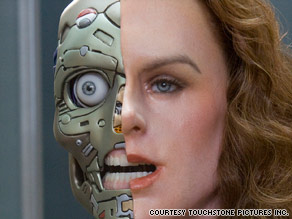Tonight with my wife, I watched an interesting episode of Nova titled “The World’s Smartest Machine.” Romantic, right? You can tell we are a couple of geeks at heart. Being a huge fan of Asimov and his robot creations, I am continually amazed at the progress of robotics and artificial intelligence. As a kid I was playing chess as early as the 3rd grade. I’ve always thought of myself as a pretty good chess player. When I heard about a computer that supposedly could beat a world champion chess player, I was intrigued. Garry Kasparov battled IBM’s Deep Blue supercomputer in 1996 and won, however he eventually lost a rematch in 1997. Well, IBM is back at it, this time taking on Jeopardy. Nova takes us behind the scenes with the developers of “Watson,” the next step in AI. I was disappointed when the episode ended and it didn’t say who won. I didn’t realize until logging on PBS.org that the contest actually was taking place while I was watching Nova (on my media center PC). After some frantic Google searches, I eventually came across a Twitter feed with a link to a Youtube posting of the episode. This was not quite 2 hours after the episode aired! Isn’t technology great? I expect the Youtube post to be served a DMCA take down, so watch it soon if you plan on it. In addition to the episode at the end of this post, I’ve embedded the Nova preview and an humorous parody of the challenges Watson overcame during his development. I suggest watching the Nova episode first. If you are at all interested in AI, you must check these out!
Watch the full episode. See more NOVA.
Jeopardy Robot Watson’s Untold Game Show History (VIDEO)
Jeopardy Feb. 14 2011 – Human vs Machine IBM Challenge Day 1 Part 1/2
Jeopardy Feb. 14 2011 – Human vs Machine IBM Challenge Day 1 Part 2/2
There are two more nights to the match, airing Tuesday February 15th, and Wednesday the 16th. Be sure to check them out, along with some live blogging on PBS.org. I find myself rooting for Watson, not because I want to see humans defeated, but because I want to see humans capable of making something smart enough to do it. Who do you think will win? Who do you want to win?

